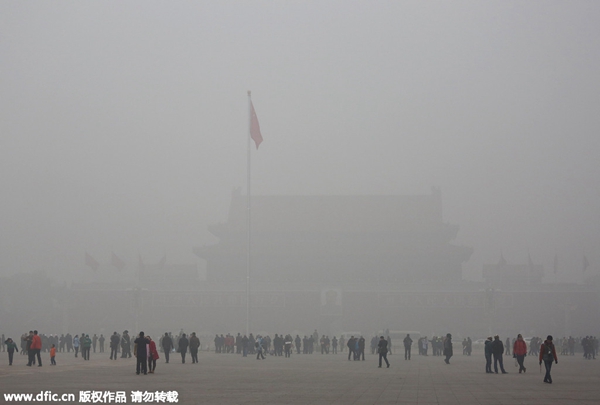 |
|
Visitors walk at the Tian'anmen Square amid severe smog in Beijing on Tuesday. [Photo/IC] |
The frequency of severe smog seems to have made emergency measures to lessen the pollution's impact part of life for Beijing residents nowadays.
However, the report that more than 20,000 cars were found driving on the capital's roads on Saturday, ignoring the ban on vehicles according to their license plate numbers, indicates that not all the necessary measures are being strictly adhered to.
The emergency measures have proved effective in helping mitigate the severity of the immediate pollution. Data showed the average discharge of pollutants in the city dropped 30 percent just 10 hours after the first red alert measures were put in place two weeks ago.
Yet, as the city sounded the red alert for the second time this weekend, complaints about the inconvenience caused by the restrictions on car use have become loud, especially as the Ministry of Environmental Protection recently issued a report identifying coal burning and steel factories as the main source of air pollution in Northeast China.
Although the report did not contradict the finding that the emission of about 5.5 million cars in the capital ranks as the top source of the pollutants generated locally, many drivers are still unwilling to admit the necessity of limiting their driving to slash vehicle exhaust emissions.
Such controversy or confusion about individual responsibility does a great disservice to the fight against air pollution.
The repeated red alerts show that Beijing has gradually learned how to respond effectively to the emergence of hazardous smog. But a long-term plan to fairly share the burden of pollution control among all local residents and neighboring areas is still missing.
To rally stronger and sustained public support for the long-term war against air pollution, it is therefore necessary for the city to have a thorough analysis and discussion about what are the costs to effectively reduce air pollution and how those costs can be fairly shared among residents in Beijing and its neighboring areas.